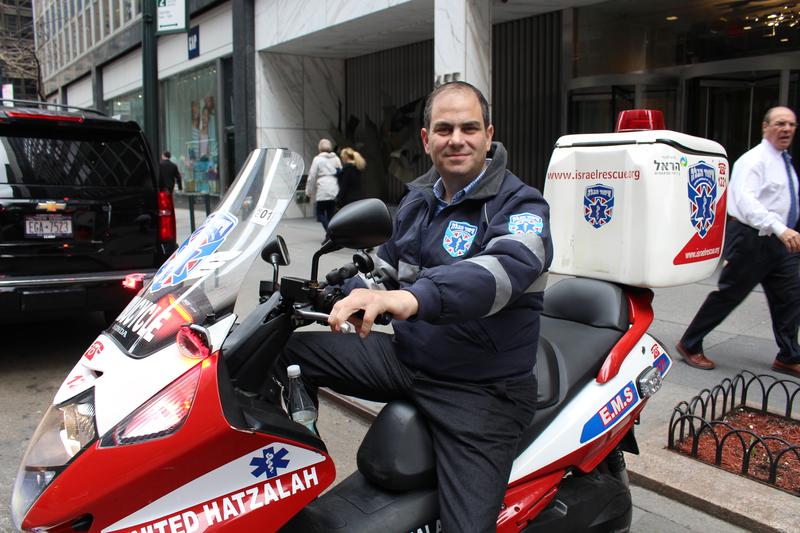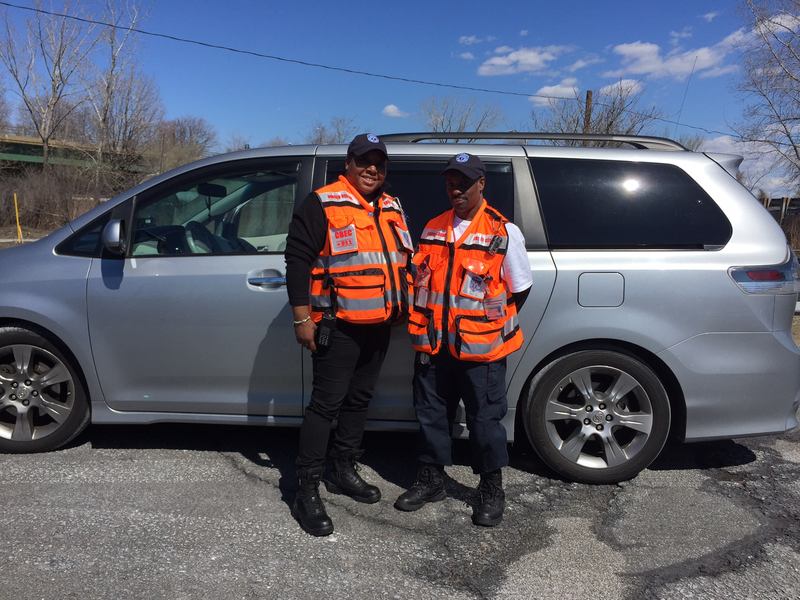
Eli Beer was 6 years old when he saw a bus blow up right in front of his eyes in Israel.
Beer watched the scene unfold through his tears: a man lying on the floor, chaos all around him. And he knew right then what he wanted to be when he grew up.
“I wanted to do something that would help me save lives,” he said.
Beer found the answer to his calling decades later, across the ocean in Williamsburg, Brooklyn, where a group of Orthodox Jewish men were volunteering their free time to respond to emergency calls. They called their system a hatzalah, which means ‘save’ or ‘rescue’ in Hebrew.
Hatzalahs in New York are rooted in the Jewish community, and supported entirely by donation. Almost all of the 1,500 volunteers in the city are Orthodox Jewish men. They use two-way radios to find out when there’s an emergency around them. A spokesperson told me they answer about 150,000 calls a year in New York City.
Beer was inspired. He thought the more volunteers he could engage, the quicker they could respond to people nearby — people who might otherwise die while waiting for an ambulance.
He took the hatzalah concept home to Jerusalem and got to work building his organization, United Hatzalah. But he made a few changes to the model.
First, he wanted the volunteers to reflect the mixed population of the city, so he invited people of all backgrounds to join.
He also made the system as nimble as possible – United Hatzalah volunteers respond to emergencies on foot, by car or on motorcycles. And they use an app that Beer helped develop called Now Force, which lets volunteers know when something happens close by.
“We used a very Israeli innovation to get it done: chutzpah,” he said.
With 3,000 volunteers in Israel, United Hatzalah started to get some attention. In 2012, Beer was asked to give a talk at TEDMED, a popular health innovation conference held that year in Washington, D.C.
Soon he helped launch similar systems in 20 different countries under a new name – United Rescue.
When Jersey City Mayor Steven Fulop heard about the program, he said he was quick to embrace the idea. He connected United Rescue to the Jersey City Medical Center, where dispatchers answer 911 calls, and advertised the volunteer training program. It’s the first city in America to launch the program, with Detroit set to start this summer.
“This has been one of the largest success stories that we’ve had over the last couple of years,” Fulop said.
Since January, United Rescue in Jersey City has trained 100 volunteers, and 50 are already responding to calls. Just as Beer envisioned, they’re as diverse as the city around them.
“There’s a sense of community that builds around this,” said Sheena Goodin, a volunteer in Jersey City. “You feel like you suddenly see a new side of your own city and its people.”

